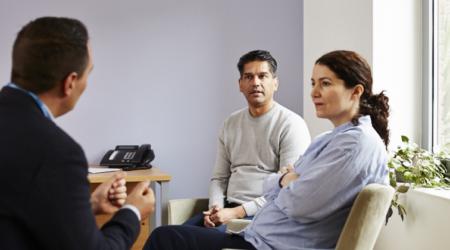Fatigue (extreme tiredness)
Fatigue is a common side effect of radiotherapy for pancreatic cancer. Travelling to hospital every day can make it worse. Tiredness can last for several weeks or months after treatment has finished. Find out more about managing fatigue.
Feeling and being sick (nausea and vomiting)
During radiotherapy, organs such as the stomach and bowel will get some of the radiation. This may make you feel sick (nausea). A few people might be sick (vomiting). Nausea or vomiting may get worse as treatment goes on, and last for a few weeks after treatment. It may be worse if you have chemoradiotherapy.
What helps with sickness?
Runny poo (diarrhoea)
You might get diarrhoea because the stomach and bowel get some of the radiation during treatment.
What helps with diarrhoea?
- Try to drink as much fluid as you can to avoid getting dehydrated (where your body loses more water than it takes in).
- If you have diarrhoea more than four to six times a day or if you can’t drink much fluid, speak to your medical team. They can give you tablets to control the diarrhoea.
- Ask a dietitian at the hospital about any changes to your diet that might help.
- Read our tips for coping with diarrhoea.
Problems with eating and drinking
You might not feel like eating and may lose weight. Keeping your weight stable may improve how you feel and help you cope better with pancreatic cancer and its treatment.
What helps with problems with eating and drinking?
Speak to your dietitian, nurse or doctor if you are struggling to maintain your weight. They can give you advice. They can also prescribe pancreatic enzymes if you haven’t already been given them, which might help. If you haven’t seen a dietitian, ask to be referred to one.
Read more about dealing with diet and weight loss.
Indigestion
Some people also find that they have indigestion or heartburn after radiotherapy. Talk to your medical team about this if it’s a problem. They might be able to give you medicine to help.
Skin reactions
Some people’s skin can react to radiotherapy although this is rare. The skin may become drier and more rarely, sore, itchy or darker, often on your back. Any skin reaction will usually settle down two to four weeks after treatment finishes.
Your medical team may suggest you use moisturiser to reduce the risk of skin problems. If you do get any skin reactions, your medical team can give you advice on managing them.
Bowel damage
It is very rare, but there is a small risk of long term bowel damage from radiotherapy. This can happen months or years after treatment. Symptoms include severe tummy pain, persistent nausea and vomiting, vomiting blood, or poo like black tar. If you have any of these symptoms at any time, go to A&E straight away.
Tummy pain
Sometimes SABR can cause tummy pain. This is usually worse after two weeks and settles down within six weeks. Your medical team can give you painkillers to manage it.
It’s important you tell your medical team about any pain after radiotherapy. They will check what’s causing it and how best to treat it.





